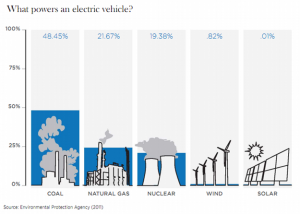 Propane autogas is gaining momentum with American fleets because it’s the most practical and cost-effective clean fuel on the market. Not only can autogas stations be implemented for a fraction of the expense of other alternative fuel infrastructure, they can also be built quickly and at no upfront cost to fleets. Autogas has averaged $1.45 less per gallon than gasoline over the past five years.
Propane autogas is gaining momentum with American fleets because it’s the most practical and cost-effective clean fuel on the market. Not only can autogas stations be implemented for a fraction of the expense of other alternative fuel infrastructure, they can also be built quickly and at no upfront cost to fleets. Autogas has averaged $1.45 less per gallon than gasoline over the past five years.
Proponents of other alternative fuels lobby the government for support to make their clean fuel technology viable, while thousands of fleet vehicles across the country are already saving money on fuel costs, and achieving a faster ROI, by converting to autogas.
Recent examples of U.S. autogas market growth include:
-
multiple Texas school districts switching their buses to propane autogas through CleanFUEL USA, which recently announced more than 37 new or expanded contracts with Texas ISDs for autogas refueling infrastructure equipment.

-
the Alliance AutoGas network expanding internationally to give Canadian fleets access to its complete autogas vehicle conversion and refueling program.
-
major OEM manufacturer ROUSH CleanTech expanding its presence in America’s automotive capital of Detroit with a new 60,000 square foot facility to support the production of autogas systems for the new Blue Bird Vision school buses. ( CleanFUEL USA recently announced an upgraded new Detroit-area facility, as well.)
-
new propane-autogas-powered fleets making headlines every day like the Sandy Springs, Ga., PD; the Lee County Sheriff’s Office; DHL; the City of Springfield, Ill.; and Veolia Transportation, which is converting 300 taxi cabs to autogas nationwide.

-
states like Mississippi, which is running several public fleet vehicles on autogas, and Indiana, which is converting hundreds of government fleet vehicles to autogas and implementing 115 autogas stations across the state.
Despite autogas being the most cost-effective, easy-to-implement clean fuel, the popularity and government favoritism of CNG will remain an obstacle. According to a recent report from Pike Research, “even though [CNG] fuel is much more difficult (and more expensive) to handle than autogas, it looks as if CNG will attract the majority of the incentives from many governments around the world.” But whether or not natural gas lobbyists achieve continued favoritism among legislators, propane autogas will always have an advantage as the only practical clean fuel that fleets can already affordably adopt.
The bottom line is, the federal government may be ignoring the most viable alternative fuel on the market, but America’s fleets certainly aren’t.
]]> Electric vehicles (EVs) have recently attracted significant attention from the media, politicians, and environmentalists, but do EVs really live up to everything their manufacturers promise? Autogas for America released a new Alternative Fuel Fact Brief on November 25, examining the evidence behind the industry’s claims that EVs are viable, cost-effective and “zero-emission.”
Electric vehicles (EVs) have recently attracted significant attention from the media, politicians, and environmentalists, but do EVs really live up to everything their manufacturers promise? Autogas for America released a new Alternative Fuel Fact Brief on November 25, examining the evidence behind the industry’s claims that EVs are viable, cost-effective and “zero-emission.”
The study questions electric vehicle’s environmental record, considering the greenhouse gases emitted during EV manufacturing. It points out that while EVs have no tailpipe emissions, they charge on U.S. electric grids that draw 50 percent of their power from coal. The Fact Brief also casts doubt on the practicality of EVs for public and private fleets, citing the technology’s struggles with limited carrying capacity, limited driving range and the high cost of their charging infrastructure. The study warns that experts believe an increase in EVs could overburden an already strained electric grid.
While electric vehicles hold many benefits over vehicles running on traditional fuels, the Fact Brief encourages consumers to consider other alternative energies which have more verified environmental and economic benefits and a proven record in American fleets.
]]>One of the more noticeable traits – maybe because it is not so noticeable – of an EV is that they produce almost no sound. However, due to concerns over safety, companies such as Warwick Manufacturing Group are designing and testing sounds to be added to EVs.
“Electric vehicles and hybrids are alarmingly quiet,” said Warwick’s Paul Jennings. “The concern is that as a road user, as a pedestrian or as a cyclist, we’re just not aware of their presence. And therefore there’s a real danger that there could be an accident.”
Jennings further explained that sounds they are testing range from regular “car” noises to sounds from “The Jetsons.” Once they have a noise, they test them in their car, named Elvin.
Clotaire Rapaille, consultant for the automotive industry, thought this idea sounded like music to her ears.
“Think of all the possibilities that are suddenly open,” she said. “We have different ring tones for different cell phones; we can have different sounds for different kinds of cars.”
While safety is important, noise emissions shouldn’t be the only thing that electric vehicles are worried about. In an article published on the American Fuel Facts blog, we describe how EVs may be worse for the environment than gasoline vehicles when energy-sapping batteries are factored into the equation.
Zero-noise and zero-emissions both sound nice, but it looks like neither may turn out to be in our future.
]]>